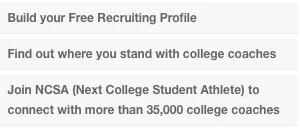Iowa State Receives No Additional Penalties for Calls, Texts
Iowa State’s long “major” infractions case involving impermissible calls and text messages was finally resolved on Friday with the Division I Committee on Infractions accepting the summary disposition report and all self-imposed penalties without adding any additional sanctions. The violations themselves (over 1400 impermissible phone calls to 400 prospects) are unremarkable, as are the penalties the school self-imposed (two years probation and a variety of recruiting restrictions). What is noteworthy is how the failure to monitor charge came up.
Two sections of the report are interesting. The first concerns the recruiting software used to track calls:
The compliance office did not ensure that each sports program was audited every year, and little, if any cross-checking of logs and telephone records was conducted. Further, there was never any direction to give special attention to any particular sport program during certain high recruiting periods.
In 2008, Iowa State began using a software program that required manual logging of calls. Many major athletic departments are now using software programs which automatically track recruiting calls, using apps on smartphones which intercept phone calls. These systems can be combined with programs which perform a complete audit against phone bills. In theory, this should be a sufficient system. But until the COI has a violation where a large number of phone calls slips through this type of automatic system, it is not known why type of manual monitoring is needed.
The other noteworthy section involves the education given to coaches:
In addition, many of the coaches involved in the violations were not employed at the institution when the July 28, 2008, email was sent, and those new coaches could not recall being informed of the memo by their previous institutions.
This specific fact being noted in a major infractions case all but requires compliance offices to have a new coach orientation program. Many have developed such a program, but it should become universal after this case. Orientations typically are a combination of a quick refresh of rules and explanations of how those rules are monitored or enforced on an individual campus.


